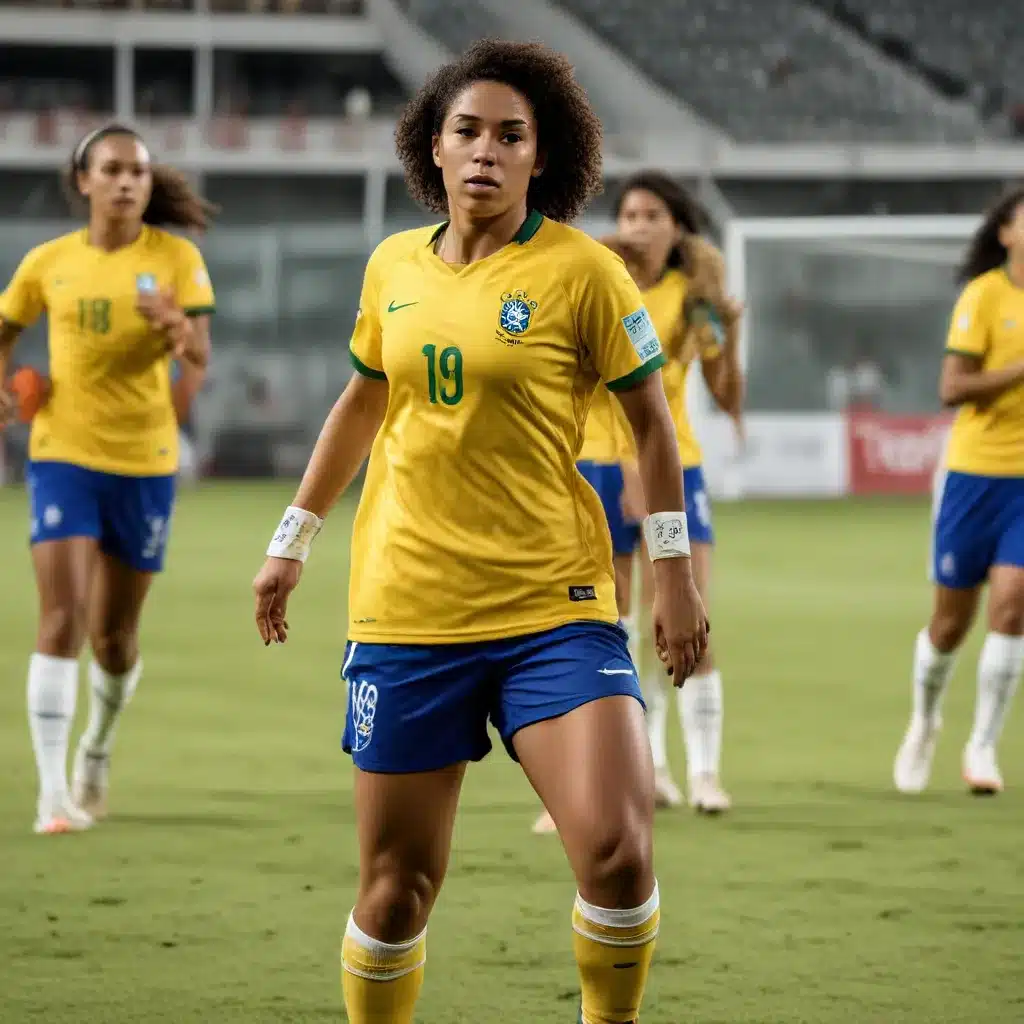
Brazilian Football Culture
Football is the heartbeat of Brazil, a national obsession that transcends gender and social boundaries. The beautiful game has long been woven into the fabric of Brazilian culture, with the country’s passionate fans and legendary players captivating the world. Yet, for decades, the realm of women’s football remained largely overshadowed, struggling to gain the same recognition and support as its male counterpart.
Despite the dominance of men’s football, the roots of women’s football in Brazil run deep. The sport’s origins can be traced back to the early 20th century, when Brazilian women began to challenge the societal norms that confined them to the sidelines. However, the journey has been arduous, marked by gender-based discrimination, lack of resources, and a deeply ingrained belief that football was a “man’s game.”
Women’s Football in Brazil
In the 1940s and 1950s, women’s football in Brazil faced an uphill battle for acceptance. The Brazilian Sports Confederation, the governing body of sports in the country, banned women from playing football, deeming it “incompatible with the female nature.” This oppressive decree effectively pushed the sport underground, relegating it to the shadows of the male-dominated game.
Undeterred, passionate Brazilian women continued to play football, organizing informal matches and tournaments in defiance of the ban. These pioneers, fueled by their love for the game, refused to be silenced, paving the way for future generations to challenge the status quo.
It wasn’t until the 1970s and 1980s that the tide began to turn, with the gradual relaxation of the ban and a growing awareness of the need for gender equality in sports. The emergence of players like Sissi and Marta, who would go on to become global superstars, inspired a new wave of girls to take up the sport.
Trailblazing Footballers
Sissi, a skilful midfielder, was a trailblazer in the 1980s, showcasing her exceptional technical abilities and helping to elevate the profile of women’s football in Brazil. Her dedication and perseverance in the face of societal prejudice set the stage for the rise of the legendary Marta.
Marta, often referred to as the “Pele of Women’s Football,” has been a transformative figure in the sport. With her mesmerizing dribbling skills, clinical finishing, and unparalleled vision, Marta has shattered records and inspired millions around the world. Her success has been a testament to the resilience and talent of Brazilian women footballers, who have had to overcome immense challenges to reach the pinnacle of the game.
Marta’s journey is a microcosm of the broader struggles faced by women in Brazilian football. Growing up in the small town of Dois Riachos, Marta encountered resistance from her family and community when she first expressed a desire to play the sport. Undeterred, she persevered, honing her skills and eventually securing a spot on the Brazilian national team, where she has become a global icon.
Impact and Influence
The stories of Sissi, Marta, and other trailblazing Brazilian women footballers have had a profound impact, both on and off the pitch. Their success has challenged long-held stereotypes, redefining perceptions of women’s capabilities in the sport.
These inspirational figures have not only achieved greatness on the field but have also used their platforms to advocate for greater opportunities and resources for women’s football in Brazil. Their influence has been felt at the grassroots level, where they have become role models for young girls, inspiring them to pursue their dreams and defy societal expectations.
Professional Leagues and Competitions
The growth of women’s football in Brazil has been further bolstered by the establishment of professional leagues and prestigious tournaments. The Brazilian Women’s Championship, known as the Campeonato Brasileiro de Futebol Feminino, has provided a platform for the country’s top female talent to showcase their skills and compete at the highest level.
Moreover, Brazilian women’s teams have made their mark on the international stage, with the national team consistently ranking among the best in the world. The team’s participation in major tournaments, such as the FIFA Women’s World Cup and the Olympic Games, has not only elevated the profile of the sport but has also inspired a new generation of Brazilian girls to dream big and follow in the footsteps of their idols.
Grassroots Initiatives
Alongside the professional leagues and national team successes, grassroots initiatives have played a crucial role in the development of women’s football in Brazil. Community-based programs, such as those organized by non-profit organizations and local clubs, have worked tirelessly to provide opportunities for girls and women to access the sport, regardless of their socioeconomic background.
These programs, often led by passionate coaches and volunteers, have not only focused on honing technical skills but have also emphasized the importance of teamwork, leadership, and personal empowerment. By creating inclusive and supportive environments, these grassroots initiatives have helped to break down barriers and inspire a new generation of Brazilian women footballers to pursue their dreams.
Conclusion
The journey of women’s football in Brazil is a remarkable story of resilience, determination, and the power of sport to challenge and redefine societal norms. From the early pioneers who defied the odds to the current generation of superstars, Brazilian women footballers have carved out a space for themselves in the nation’s beloved game, inspiring a cultural shift and paving the way for a more inclusive and equitable future.
As the world continues to celebrate the achievements of Brazilian women in football, it is clear that the impact of these trailblazers extends far beyond the confines of the pitch. They have become symbols of empowerment, role models for aspiring athletes, and agents of change, redefining the narrative around women’s participation in sport. The legacy of these Brazilian women footballers will continue to inspire generations to come, driving the sport forward and breaking down stereotypes one match at a time.

